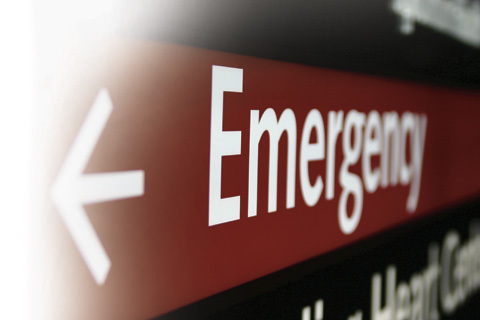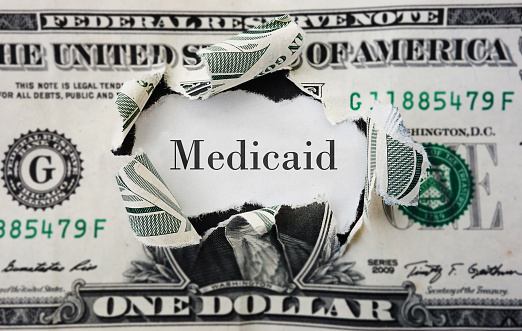Amid the COVID-19 pandemic, California Gov. Gavin Newsom has released a revised budget proposal that includes numerous tax increases, with one specifically targeting vapor and e-cigarette products. This amendment to the current vapor tax would impose an additional rate of $2 for each 40 milligrams of nicotine in vapor products. California already taxes vapor products at 59.27 percent of the original wholesale value. If this proposed budget passes, the additional tax would take effect January 1, 2021.
The overall revenue from this vapor tax increase is projected to raise $32 million in 2020-2021 and would be allocated to law enforcement, youth tobacco prevention, and health care programs.
In general, cigarette taxes are notoriously unreliable revenue sources. Often, tobacco tax increases result in long-term revenue shortfalls. From 2001 to 2011, “revenue projections were met in only 29 of 101 cases where cigarette/tobacco taxes were increased,” according to the National Taxpayer Union Foundation. Moreover, a decline in cigarette consumption caused tobacco tax revenue “to drop by an average of about 1 percent across all states from 2008 to 2016,” Pew Charitable Trusts notes.
Furthermore, lower-income Americans tend to spend a greater share of their disposable income on cigarettes, which means they are disproportionately impacted by these tax increases. A Cato Journal article notes from 2010 to 2011, “smokers earning less than $30,000 per year spent 14.2 percent of their household income on cigarettes, compared to 4.3 percent for smokers earning between $30,000 and $59,999 and 2 percent for smokers earning more than $60,000.”
Despite a relentless fearmongering campaign, e-cigarettes are significantly less harmful than combustible cigarettes. In 2015, Public Health England (PHE), a renowned public health agency, declared e-cigarettes to be 95 percent less harmful than tobacco cigarettes. In 2018, PHE reiterated this, finding “vaping is at least 95% safer than smoking.” Other public health groups, including the Royal College of Physicians; National Academies of Sciences, Engineering, and Medicine; and the American Cancer Society have also acknowledged the reduced harm of e-cigarettes.
Unfortunately, proponents of this vaping tax increase claim that these measures deter youth use of e-cigarettes, despite no evidence to support such unwarranted claims. Youth vaping prevention has been of high significance to Gov. Newsom and the California Legislature with Senate Bill 793, which would ban the sale of flavored tobacco products in California, working its way through the legislature.
An analysis by The Heartland Institute examined the effects of Pennsylvania’s 2016 40 percent wholesale tax on vaping products. According to the 2015 Pennsylvania Youth Survey (PAYS), 15.5 percent of middle and high school students reported using an e-cigarette within the past 30 days. In 2017, PAYS found this increased to 16.3 percent of middle and high school students. Notably, e-cigarette use among 10th and 12th graders increased from 20.4 and 27 percent respectively, in 2015, to 21.9 and 29.3 percent in 2017.
The most recent report on youth tobacco use in California comes from the California Tobacco Facts and Figures 2019. According to this report, in 2019, 10.9 percent of California high school students reported current use of e-cigarettes or using an e-cigarette at least once in the 30 days prior to the survey. According to the 2017 California Youth Risk Behavior Survey, only 1.9 percent of high school students reported using vaping products daily. More .
Additionally, from January 1, 2018 to September 30, 2019, the U.S. Food and Drug Administration administered 6,144 tobacco age compliance inspections in California, in which the agency used a minor in an attempt to purchase tobacco products. Of those, only 293, or 4 percent, resulted in a sale to a minor. Of the violations, 151 (2 percent of all compliance checks) involved the sale of e-cigarettes or vaping devices. The number of violations involving sales of cigars and cigarettes were 72 and 69, respectively, during the same period.
Moving forward, Golden State lawmakers should avoid relying on increasing e-cigarette and vapor taxes to fund programs other than tobacco cessation and education efforts. Rather than applying “sin taxes” to products that have aided millions of smokers in quitting combustible cigarettes, lawmakers should celebrate the benefits of electronic cigarettes and vaping devices.
The following articles provide more information about sin taxes and tobacco harm reduction.
Cigarette Taxes and Smoking
https://heartland.org/policy-documents/cigarette-taxes-and-smoking
In this study from the Cato Institute, Kevin Callison and Robert Kaestner suggest future cigarette-tax increases will offer relatively few public health benefits, and they say the justification given for future taxes should be based on the public finance aspects of cigarette taxes, such as the regressiveness, volatility, or the rate of revenue growth associated with those taxes.
Three Reasons to Avoid Tobacco Taxes
http://www.commonwealthfoundation.org/policyblog/detail/three-reasons-to-avoid-tobacco-taxes
Elizabeth Stelle of the Commonwealth Foundation examines Pennsylvania’s proposed tobacco tax hikes. Stelle argues they are the wrong prescription for the state, and she outlines several reasons why they are harmful.
Research & Commentary: Top Ten Reasons Not to Raise Tobacco Taxes
https://heartland.org/policy-documents/research-commentary-top-ten-reasons-not-raise-tobacco-taxes
Heartland Institute Government Relations Director John Nothdurft argues targeted tax increases serve only to push sound fiscal policies and real budget reforms to the public policy back burner. Legislators concerned about the public health effects of tobacco should encourage the use of readily available smoking cessation products and services instead of supporting bad tax policy.
Five Things to Consider Before Raising Tobacco Taxes: A Review of the Research
https://heartland.org/policy-documents/five-things-consider-raising-tobacco-taxes-review-research
This Heartland Institute Policy Brief argues, “Tax increases above current levels are not justified by appealing to the costs smokers impose on nonsmokers. Smokers already pay more than this measure could justify.”
Vaping, E-Cigarettes, and Public Policy Toward Alternatives to Smoking
https://heartland.org/publications-resources/publications/vaping-e-cigarettes-and-public-policy-toward-alternatives-to-smoking
For decades, lawmakers and regulators have used taxes, bans, and burdensome regulations as part of their attempt to reduce the negative health effects of smoking. Recently, some have sought to extend those policies to electronic cigarettes. This booklet from The Heartland Institute urges policymakers to re-think that tax-and-regulate strategy. Policymakers should be mindful of the extensive research that supports tobacco harm reduction and understand bans, excessive regulations, and high taxes on e-cigarettes often encourage smokers to continue using more-harmful traditional cigarette products.
Research & Commentary: Randomized Trial Finds E-Cigarettes Are a More Effective Smoking Cessation Tool than Nicotine Replacement Therapy
https://heartland.org/publications-resources/publications/research–commentary-randomized-trial-finds-e-cigarettes-are-more-effective-smoking-cessation-tool-than-nicotine-replacement-therapy
In this Research & Commentary, Lindsey Stroud, a state government relations manager at The Heartland Institute, examines a study in The New England Journal of Medicine that shows e-cigarettes and vaping devices are twice as effective as nicotine replacement therapy (NRT) in helping smokers quit using tobacco cigarettes. Nearly 700 participants were studied during a 52-week period. Researchers found that 18 percent of e-cigarette users reported abstinence, compared to 9 percent of those using NRT. Stroud wrote that “these latest findings provide more valuable information on the public health role that e-cigarettes and vaping devices provide for the 38 million cigarette smokers in the United States,” and she implores policymakers to regulate these devices in a way that promotes, rather than prohibits, their use.
Research & Commentary: Vaping Taxes Do Not Deter Youth Use of E-Cigarettes
https://heartland.org/publications-resources/publications/research–commentary-vaping-taxes-do-not-deter-youth-use-of-e-cigarettes
In this Research & Commentary, Lindsey Stroud, a state government relations manager at The Heartland Institute, examines the effects of Pennsylvania’s 2016 40 percent wholesale tax on youth vaping. Using data from the Pennsylvania Annual Youth Survey, Stroud finds the tax did not curb youth e-cigarette use, and from 2015 to 2017, youth use of e-cigarettes increased in Pennsylvania. Stroud cautions lawmakers to avoid enacting taxes on e-cigarettes in an effort to address youth e-cigarette use.
Policy Tip Sheet: Tobacco Harm Reduction 101: California
https://heartland.org/publications-resources/publications/policy-tip-sheet-tobacco-harm-reduction-101-california
In this Policy Tip Sheet, Lindsey Stroud, state government relations manager at The Heartland Institute, analyses the vaping industry in California, including economic data, state health department findings on vaping-related lung illness, youth e-cigarette use, tobacco retail compliance checks, and state funding dedicated to tobacco control programs.
The work of former Heartland State Government Relations Manager Lindsey Stroud is included in this Research & Commentary.
____
Nothing in this Research & Commentary is intended to influence the passage of legislation, and it does not necessarily represent the views of The Heartland Institute. For further information on this and other topics, visit the Budget & Tax News website, The Heartland Institute’s website, our Consumer Freedom Lounge, and PolicyBot, Heartland’s free online research database.
The Heartland Institute can send an expert to your state to testify or brief your caucus; host an event in your state; or send you further information on a topic. Please don’t hesitate to contact us if we can be of assistance! If you have any questions or comments, contact Heartland’s Government Relations department, at [email protected] or 312/377-4000.




